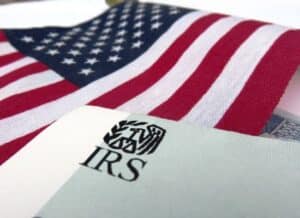Making a mistake while filing your taxes can lead to complications with the Internal Revenue Service (IRS). Some oversights or errors are easily fixed but others could have deeper consequences, impacting your refund, your tax liability or even lead to fines or an audit. While CBM always recommends working with a knowledgeable tax professional, you should always be mindful to avoid these common mistakes.
- Missing or Inaccurate Social Security Number (SSN): Your SSN is your identity. It is used on most important documents, including the reported earnings submitted by your employer. If you file your taxes without your SSN or mistype the numerals, the government may not be able to verify your identity and the tax form could be unusable. The SSN on your return should appear exactly as it is printed on your Social Security card.
- Misspelled Names: Similar to the situation with your Social Security number, your name is a key identification method used by the government. Do not use a nickname or alternative to the name printed on your Social Security card. If you have legally changed your name and received approval from the Social Security Administration, you should use your new name on your tax return.
- Inaccurately Entered Information: There are a lot of numbers involved with filing your tax return. To accurately determine your credits and deductions, your initial income reporting needs to be accurate. Wages, dividends, bank interest and other income you may have received should be carefully checked against forms or invoices to ensure accuracy.
- Incorrect Filing Status: Your filing status directly affects the tax bracket, credits and deductions you can claim and the total amount of tax you pay. There are five filing statuses you may qualify for.
a. Single
b. Head of Household
c. Married Filing Jointly
d. Married Filing Separately, and
e. Qualifying Widower
If you qualify for more than one filing status, consider researching the status which will be a better fit for your financial situation. It may mean the difference between receiving a refund and owing more in taxes. - Math Mistakes: The most common type of error, math mistakes are easy to make while entering numbers to reflect income, capital gains and deductions. Simple functions like addition and subtraction may be at fault. Whatever the mistake, carefully checking your work and using a calculator or tax tool can save you headaches down the line.
- Incorrect Bank Account Number: Direct deposits are a great way to receive your tax refund. They are a fast and easy way to receive funds from the government. But be careful. Entering your bank routing or account number inaccurately could mean your money is sent to another individual! Enter the numerals exactly as they appear on your bank app or in your checkbook.
- Unsigned forms: A signature at the bottom of your form is a must. The IRS may not accept unsigned forms. Every box that asks for your signature needs to be signed physically if you are mailing your return or electronically if you are filing online.
- Not Entering Items on the Right Line: Each form comes with dozens of boxes and lines for information to be filled out. If a prompt is answered on the wrong line, the information will be deemed inaccurate and you may face a financial consequence. Prompts should be answered on the right line or in the right box.
- Automatically Take the Standard Deduction: Itemizing your deductions takes a great deal of effort but this could prove worthwhile. This is not to suggest the standard deduction is the wrong financial choice. The Tax Cuts and Jobs Act nearly doubled the standard deduction. Still, it would be helpful to evaluate the numbers and determine the right method for your financial situation.
- Not Taking the Credits and Deductions You are Entitled To: The IRS will not warn you that you are missing out on a credit or deduction that you qualify for. As a result, you could be leaving money behind with your tax return if you do not take the time to educate yourself. Common deductions and credits such as the child and dependent care credit or the home office deduction are a great place to start. You can find more available deductions on the IRS website.
You may be surprised to know the most common mistakes with tax filings, as reported by the IRS, are not a hidden requirement or complex issue. Instead, the most common errors result from not checking the accuracy of the information you enter on your tax forms. So before you submit your taxes, read over those forms again to ensure the information is correct. Contact CBM if we can help.
Councilor, Buchanan & Mitchell (CBM) is a professional services firm delivering tax, accounting and business advisory expertise throughout the Mid-Atlantic region from offices in Bethesda, MD and Washington, DC.



